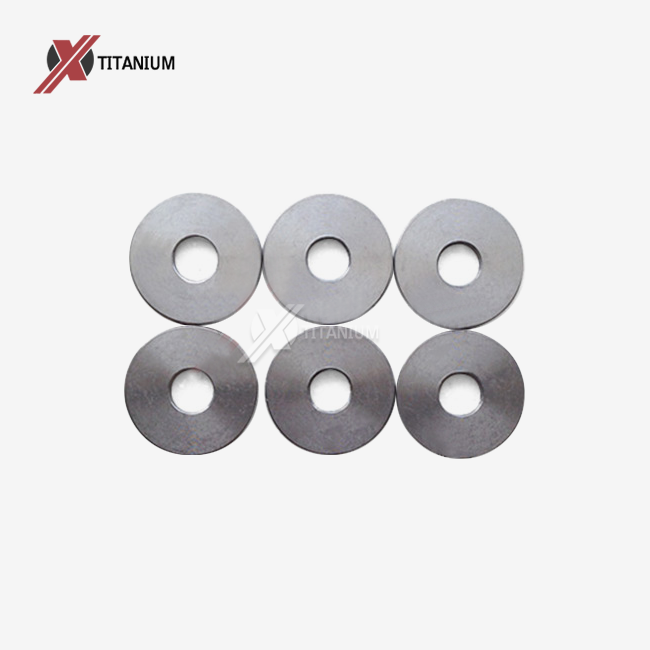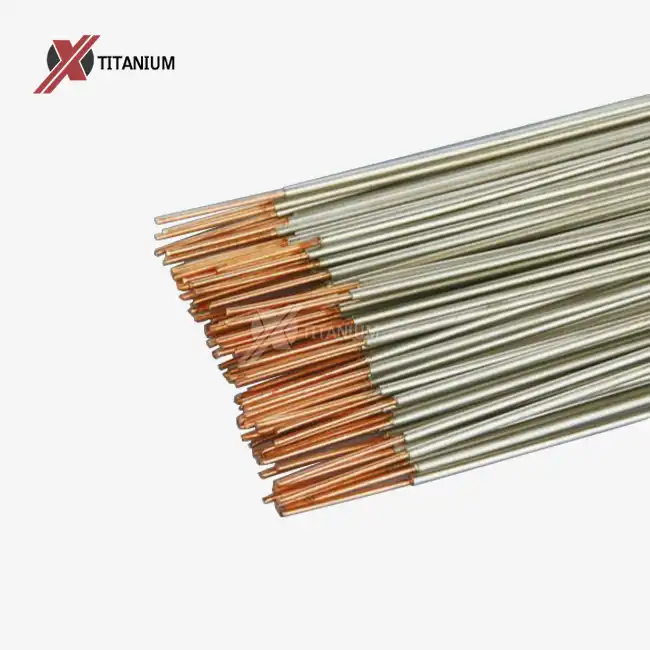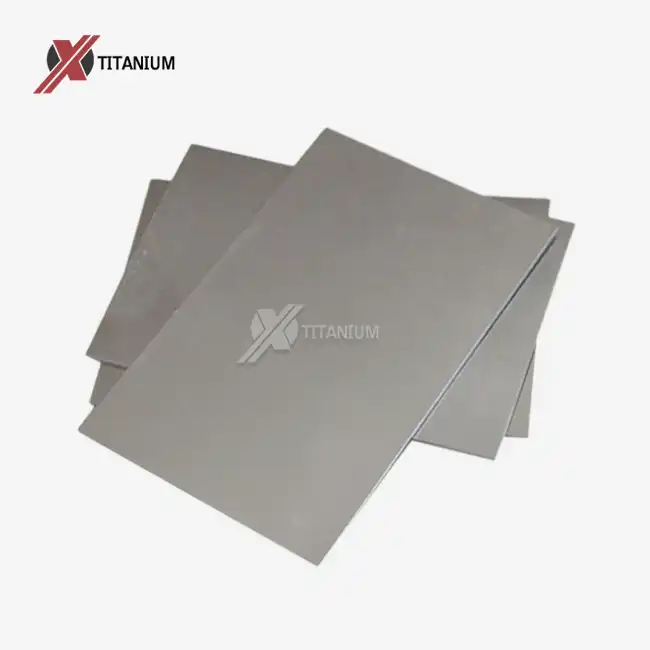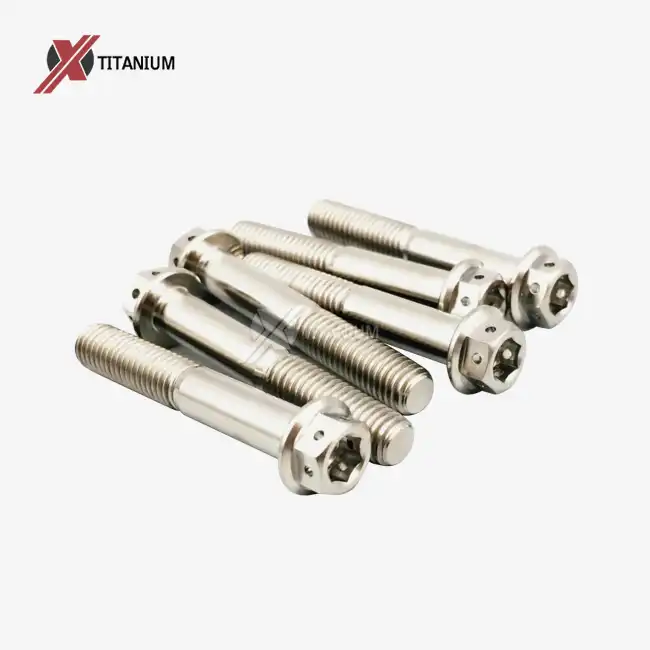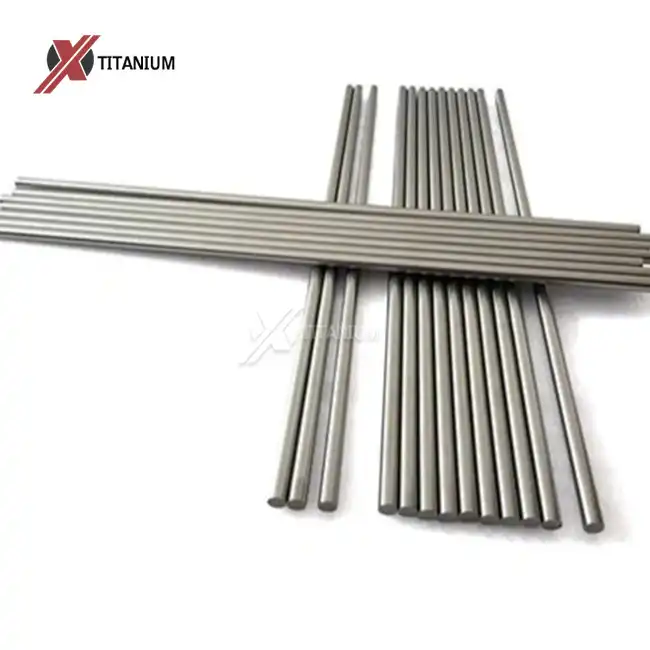The Titanium Flat Washers: Properties and Applications
Unique Properties of Titanium Flat Washers
Titanium flat washers have garnered significant attention in various industries due to their exceptional properties. These washers boast an impressive strength-to-weight ratio, surpassing many other metallic alternatives. The inherent characteristics of titanium, such as its low density and high tensile strength, make it an ideal material for washers used in weight-sensitive applications.
Corrosion resistance is another hallmark feature of titanium flat washers. They exhibit remarkable resilience against various corrosive environments, including saltwater, acids, and industrial chemicals. This property ensures longevity and reliability, even in harsh operating conditions. Moreover, titanium's ability to form a protective oxide layer further enhances its resistance to degradation.
Biocompatibility is a crucial attribute that sets titanium flat washers apart, especially in medical and food processing industries. The material's non-toxic nature and resistance to bodily fluids make it suitable for use in implants and other medical devices. This property also extends to applications where contact with food or pharmaceuticals is a concern.
Wide-ranging Applications Across Industries
The versatility of titanium flat washers has led to their adoption in numerous industries. In aerospace, these washers play a vital role in aircraft construction, satellite components, and space exploration equipment. Their lightweight nature contributes to fuel efficiency without compromising structural integrity.
The marine industry extensively utilizes titanium flat washers in shipbuilding, offshore platforms, and underwater equipment. Their resistance to saltwater corrosion ensures prolonged service life in maritime environments. Similarly, in chemical processing plants, these washers withstand exposure to aggressive chemicals, maintaining seal integrity in critical equipment.
In the automotive sector, particularly in high-performance and racing applications, titanium flat washers find use in engine components, suspension systems, and exhaust assemblies. Their ability to withstand high temperatures and stresses makes them ideal for these demanding applications.
Advancements in Titanium Flat Washer Manufacturing
Cutting-Edge Production Techniques
The manufacturing of titanium flat washers has witnessed significant advancements in recent years. Precision CNC machining has revolutionized the production process, allowing for tighter tolerances and more complex geometries. This technology enables manufacturers to create washers with intricate designs and custom specifications, catering to specific industry needs.
Advanced stamping techniques have also emerged, offering a cost-effective solution for high-volume production of titanium flat washers. These methods ensure consistency in dimensions and quality across large batches, meeting the stringent requirements of industries like aerospace and automotive.
Additive manufacturing, or 3D printing, is making inroads into titanium flat washer production. This technology allows for the creation of washers with complex internal structures or custom alloy compositions, opening up new possibilities for specialized applications.
Surface Treatment Innovations
Surface treatment of titanium flat washers has seen remarkable progress, enhancing their performance and aesthetic appeal. Anodizing techniques have evolved to offer a wider range of colors and improved wear resistance. This process not only provides decorative options but also increases the surface hardness of the washers.
Nitriding, a thermochemical surface treatment, has gained popularity for enhancing the wear resistance and fatigue strength of titanium flat washers. This process creates a hard, nitrogen-rich layer on the surface, significantly improving the washer's durability in high-stress applications.
Plasma electrolytic oxidation (PEO) is an emerging surface treatment technique that creates a ceramic-like coating on titanium flat washers. This coating offers exceptional hardness, wear resistance, and thermal insulation properties, expanding the potential applications of these washers in extreme environments.
Selecting the Ideal Titanium Flat Washer: Factors to Consider
Material Grade and Composition
When choosing titanium flat washers, the material grade is a crucial consideration. Grade 2 titanium, known for its excellent formability and corrosion resistance, is suitable for general-purpose applications. Grade 5 (Ti6Al4V), an alloy containing aluminum and vanadium, offers superior strength and is often preferred for high-stress environments.
Custom alloy compositions are also available, tailored to specific application requirements. These may include additions of elements like molybdenum or palladium to enhance specific properties such as high-temperature performance or hydrogen embrittlement resistance.
Dimensional Specifications and Tolerances
The dimensions of titanium flat washers play a critical role in their performance. Outer diameter (OD), inner diameter (ID), and thickness are key parameters that need to be carefully specified. These dimensions typically range from 5-50mm for OD, 3-40mm for ID, and 0.5-5mm for thickness, but custom sizes are often available to meet specific application needs.
Tolerance levels are equally important, especially in precision applications. Tight tolerances ensure proper fit and function, particularly in assemblies where multiple components interact. It's essential to communicate precise dimensional requirements to manufacturers to ensure the washers meet the intended application specifications.
Surface Finish and Treatment Options
The surface finish of titanium flat washers can significantly impact their performance and appearance. Polished surfaces offer improved corrosion resistance and aesthetics, making them suitable for visible applications or those requiring minimal friction. Anodizing provides not only decorative options but also enhanced surface hardness and wear resistance. The ability to produce washers in various colors through anodizing can aid in part identification or brand aesthetics.
Compliance with Industry Standards
Adherence to industry standards is crucial for ensuring quality and compatibility. Titanium flat washers often comply with standards such as DIN 125, ISO 7089, or ANSI B18.21.1. These standards define specifications for dimensions, tolerances, and material properties. In specialized industries like aerospace or medical, additional certifications or compliance with specific regulations may be required. It's essential to verify that the chosen titanium flat washers meet all relevant standards and certifications for the intended application.
Cost Considerations and Long-term Value
While titanium flat washers may have a higher initial cost compared to washers made from other materials, their long-term value often justifies the investment. Factors to consider include the washer's expected lifespan, maintenance requirements, and potential cost savings from reduced downtime or replacements.
For high-volume applications, exploring different manufacturing methods (e.g., stamping vs. CNC machining) can help optimize costs without compromising quality. Additionally, considering the entire lifecycle cost, including installation, maintenance, and potential recycling value, provides a more comprehensive view of the washer's economic impact.
Conclusion
As we look toward 2025, the titanium flat washer market is poised for significant growth and innovation. Distributors and wholesalers should stay abreast of advancements in materials, manufacturing techniques, and surface treatments to offer the best products to their customers. The ideal titanium flat washer will balance performance, compliance, and cost-effectiveness, meeting the evolving needs of diverse industries.
For those seeking high-quality titanium flat washers and expert guidance, Baoji Chuanglian New Metal Material Co., Ltd. stands ready to assist. With over a decade of experience in titanium product manufacturing and research, they offer a comprehensive range of titanium solutions. To learn more about their titanium flat washers and other products, contact them at info@cltifastener.com or djy6580@aliyun.com.
